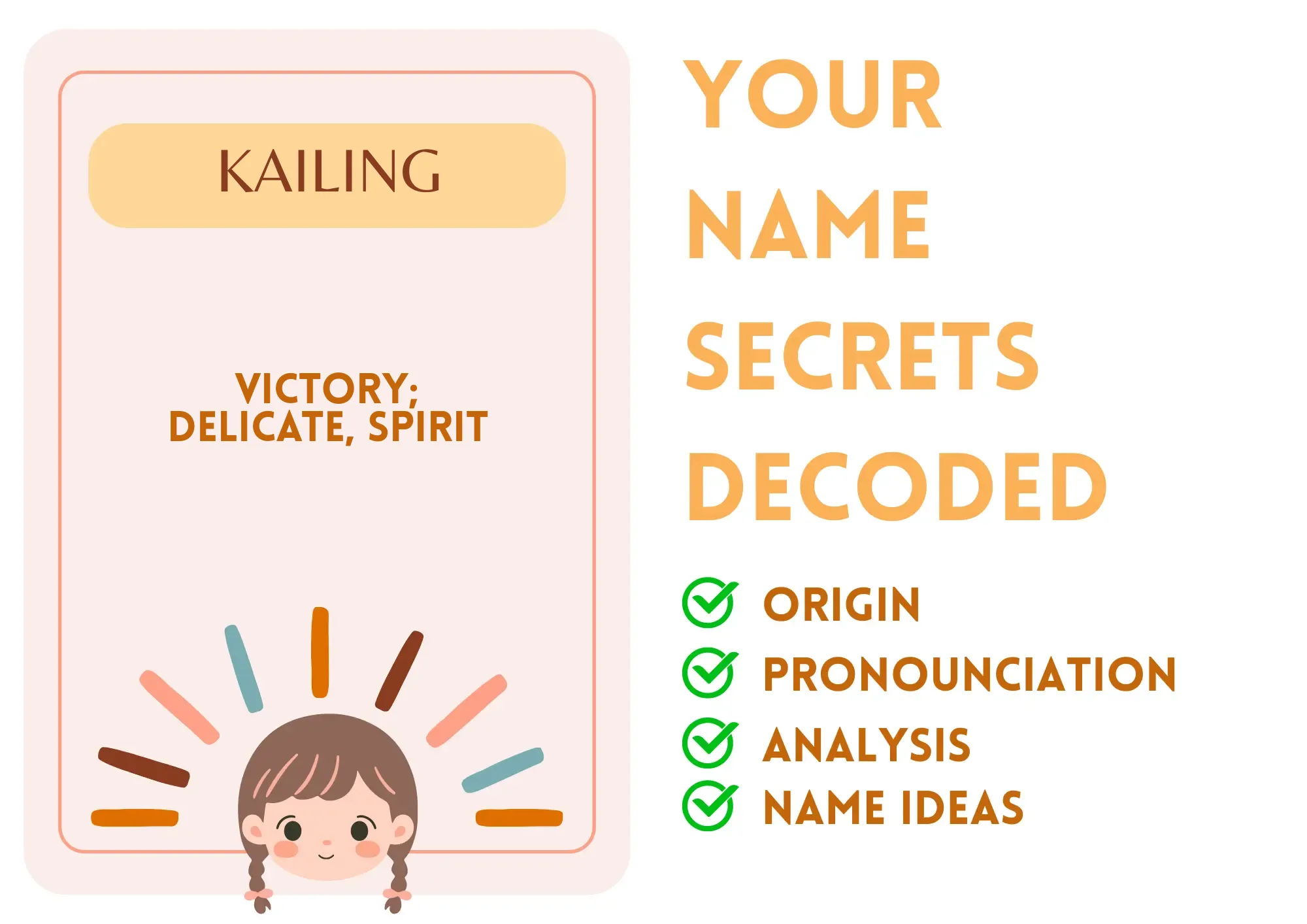
Kailing
Kailing is a name of Chinese origin, representing beauty and delicacy. In Mandarin, the characters for 'Kai' can mean 'victory' or 'open', and 'ling' often signifies 'delicate' or 'spirit'. It is a name that holds feminine connotations and is celebrated in Chinese culture for its poetic imagery and soft sound.
The name Kailing evokes feelings of grace and gentleness, making it a popular choice among parents who appreciate elegance and a touch of tradition. It remains quite straightforward to pronounce and write, adding to its appeal.
Though Kailing may not be widespread in Western popular culture, it still embodies traits admired in literature and stories, especially concerning female characters who exhibit strong yet delicate qualities. The name is appreciated for its unique sound and meaningful representation of beauty.
Basic Information
Gender: Girl
Sounds Like: KAI-ling
Pronunciation Explanation: The first syllable 'KAI' rhymes with 'high', and the second syllable 'ling' is pronounced like 'ling' in 'sibling'.
Summary and Meaning
Meaning: victory; delicate, spirit
Origin: The name Kailing has Chinese origins, deeply rooted in the Mandarin language and culture.
Usage: Kailing is traditionally a feminine name, reflecting the beauty and grace associated with its meaning.
Name Number (Chaldean)
Name Number (Pythagorean)
Religious and Cultural Significance
Religion: Buddhism
Background: In Chinese culture, names are often influenced by Buddhist philosophy, where names symbolize traits that are desirable for a person.
Cultural Significance: Kailing is valued in Chinese culture and is often chosen for its refined meaning, representing inner strength and delicate beauty.
Historical Significance: Kailing draws on historical conventions of naming in China, where names reflect aspirations and virtues. The use of 'Kai' and 'Ling' together signifies a blend of resilience and beauty, highlighting cultural ideals.
Popular Culture
Literature and Mythology: While there are fewer references in popular literature, the elements of beauty and delicacy are often aligned with traditional Chinese folklore and characters.
Movies and Television: Kailing may not feature prominently in well-known movies but embodies the traits often celebrated in female leads in Asian cinematic narratives.
Feelings and Perceptions
Perception: Kailing is generally perceived positively, often associated with grace, beauty, and a strong spirit. Many admire its soft sound and elegant connotation.
Positive Feelings: Elegant, graceful, unique, traditional, culturally rich.
Negative Feelings: May be considered exotic or unfamiliar to those outside Chinese culture.
Practical Considerations
Ease of Writing and Calling: The name Kailing is easy to write and pronounce, consisting of two syllables and a balanced flow, making it versatile and pleasant to say.
Common Typos and Misspellings: Kailling,Kaileng,Kailin,Kaingling
Common Nicknames: Kai,Ling,Kiki
Compatibility Analysis
Famous Persons Named Kailing
No results found for Kailing.
Related Names
Similar Sounding Names:
Kai,Liling,Keiling,Kailin